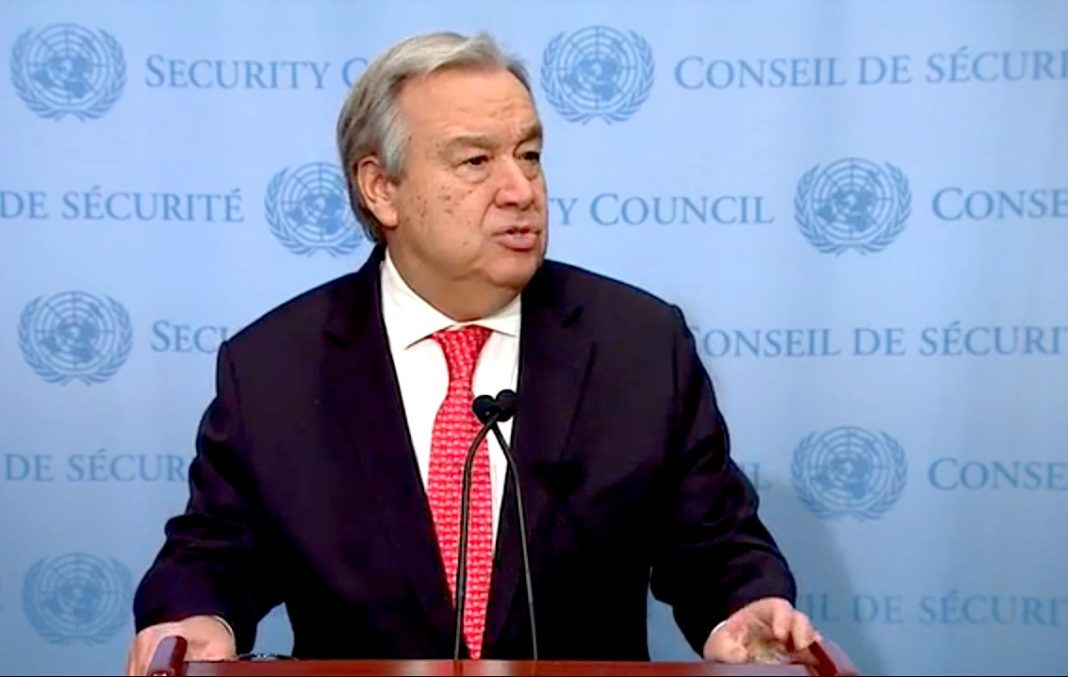By Janet Ekstract
ISTANBUL- On Monday, UN Secretary-General Antonio Guterres signaled a major alarm on wheat shortages as a fallout of Russia’s war on Ukraine. Guterres pointed out that its poor, developing countries face soaring food, fuel and fertilizer prices and now see their primary staple wheat, “being bombed,” he said. In a press conference, Guterres commented: “Russia and Ukraine represent more than half of the world’s supply of sunflower oil and about 30 percent of the world’s wheat.” He added that “grain prices have already exceeded those at the start of the Arab Spring and the food riots of 2007-2008.”
The UN chief said that 45 African and least developed nations import at least one-third of their wheat from Ukraine and Russia. He highlighted the fact that 50 percent of their wheat is from Ukraine and Russia. Those nations with major imports include Egypt, Congo, Burkina Faso, Lebanon, Libya, Somalia, Sudan and Yemen.
Meanwhile, Executive Director of the UN World Food Program, David Beasley told the Associated Press that 50 percent of grain and 20 percent of corn that his program purchases, originates from Ukraine. Beasley said this includes “the 125 million people we reach on any given day, week or month.” He added: “So (the war) is going to have a dynamic, global catastrophic impact.”
Guterres remarked: “All of this is hitting the poorest, the hardest and planting the seeds for political instability and unrest around the globe,” The UN leader warned: “Ukraine is on fire.” He repeated his call for an immediate end to all aggression with a move for serious negotiations leading to peace. Guterres added that “the impact on civilians is reaching terrifying proportions.” The UN leader announced an additional $40 million from the UN Emergency Fund to move critical supplies of food, water and medicine into Ukraine where at least close to 2 million people have been displaced. Current estimates report over 2.8 million others fled Ukraine to other countries.
In the meantime, UN humanitarian staff report civilians trapped in the southern port city of Mariupol where on Monday, TRT World reported dire shortages of food, water, medicine and other basic necessities. Reporters on the ground said people in that city are resorting to drinking water from heating systems while UN Deputy Spokesman Farhan Haq said the shortages are life-threatening. To date, the UN has reached some 600,000 people in Ukraine with some form of humanitarian assistance, Haq said. But he added that the UN’s flash appeal for $1.1 billion to assist 6 million people inside Ukraine for another three months, received only $219 million, just 19 percent of the total needed. He urged countries that made pledges to assist, to turn them into cash.
In addition, on Sunday, three UN agencies appealed for an immediate end to attacks on healthcare facilities Since the war began, they reported that 24 medical facilities and five ambulances were damaged or destroyed with at least 12 people left dead and 34 injured. UNICEF, the UN children’s agency, the World Health Organization (WHO) and the UN Population Fund reported “horrific attacks are killing and causing serious injuries to patients and health workers, destroying vital health infrastructure and forcing thousands to forgo accessing health services despite catastrophic needs.” They said the attacks are “an act of unconscionable cruelty.”




